We live in an era of rapid change, fueled by the ever-evolving realms of politics and technology. Each day, we navigate complex landscapes, witnessing the intertwining of the physical and digital worlds, the mundane and the profound, the real and the virtual. Central to these shifts are the political discussions that shape our society and technological innovations that redefine our future. This article delves into the depths of these interrelated domains, focusing on key figures, crucial debates, and pivotal events. In the intricate dance of politics and technology, we find ourselves at a critical crossroads. How will our political leaders manage fiscal responsibility? How will tech pioneers shape our shared future? These questions, among others, form the core of our exploration.
Biden, McCarthy, and the 14th Amendment Conundrum
In the ever-vibrant political arena of the United States, a significant issue has recently been brought to the forefront – the looming debt default situation. Amidst this complex scenario, two prominent figures are locked in a contentious stand-off, President Joe Biden and Representative Kevin McCarthy. As leaders of their respective parties, the weight of this critical fiscal debate rests heavily on their shoulders, with each side upholding their party’s stance.
President Biden, representing the Democratic Party, is looking for a solution that supports fiscal responsibility without imposing undue burden on American citizens. Meanwhile, McCarthy, a key figure in the Republican Party, is staunchly upholding his party’s fiscal conservative stance. He insists on his proposed bill, unwilling to make concessions. This ideological impasse has led to a widening divide, causing a stalemate that’s amplified the uncertainty surrounding the nation’s financial future. This stalemate not only underscores the deeply entrenched party ideologies but also reflects the complex dynamics of legislative negotiation in a two-party political system.
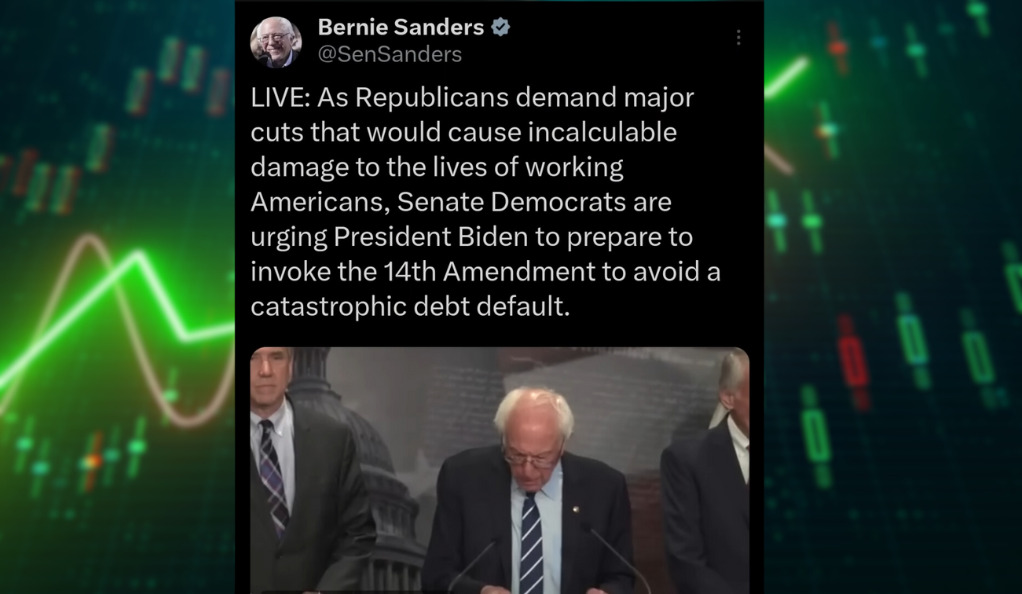
As the disagreement continues, it’s becoming increasingly apparent that a resolution may not be reached through conventional means. The potential solution, proposed by Democratic Senator Bernie Sanders, adds another layer of complexity to the situation. Sanders suggests invoking the 14th Amendment to overcome the deadlock, a move that, while constitutionally sound, is rarely employed. While this proposal has led to intense discussions about the appropriate use of constitutional provisions, it also underscores the lengths to which leaders may need to go to navigate through severe political gridlock.
The Stalemate
The current political gridlock can be traced back to the staunch opposition of McCarthy to compromise on his proposed bill. This refusal to budge has intensified the tension between the Democrats and Republicans, driving both parties further into their corners. The situation teeters on the brink of a constitutional crisis as Senator Bernie Sanders, a prominent figure in the Democratic Party, proposes an unconventional solution – invoking the 14th Amendment.
For the average citizen, this translates into a state of flux. The uncertainty around the debt default situation raises questions about the nation’s economic future and the potential for a constitutional debate. Moreover, the lack of compromise could potentially stall legislative processes, affecting key areas such as healthcare, education, and infrastructure development.
The Path Ahead
Senator Sanders, known for his bold and unapologetic stances, has made a surprising suggestion. Instead of persisting in a seemingly unending negotiation with McCarthy, Sanders proposes that the Democrats should invoke the 14th Amendment.
The 14th Amendment is a powerful tool in the constitutional arsenal. Primarily concerned with equal protection and due process, it also has a clause that addresses public debt. If invoked, it could potentially bypass the need for compromise with the Republicans on the debt default situation. This bold move, if taken, could steer the country in a new direction, emphasizing constitutional remedies over partisan negotiations.
Elon Musk: Visionary or Harbinger of Dystopia?
The realm of technology is a realm of limitless possibilities, and at its helm often stand visionaries who dare to dream beyond the ordinary. One such individual is Elon Musk, a name that has become synonymous with groundbreaking innovation and audacious vision. As the pioneering force behind groundbreaking ventures such as Tesla and SpaceX, Musk has drastically altered our perceptions of what’s possible in both terrestrial and extraterrestrial transportation. His vision and determination have played an instrumental role in driving humanity closer to a future once only imaginable in science fiction.
However, Musk’s most recent ventures, Neuralink and humanoid robots, have not just generated awe and admiration but also ignited a wave of concern and skepticism. These projects, characterized by their futuristic ambitions, are pushing the boundaries of technological innovation and ethical considerations. With Neuralink’s brain-machine interface technology and the advent of humanoid robots, we’re entering uncharted territory that poses profound questions about our future. These innovations, while promising, also bring forth complex ethical, societal, and philosophical issues that call for careful scrutiny and thoughtful discourse.
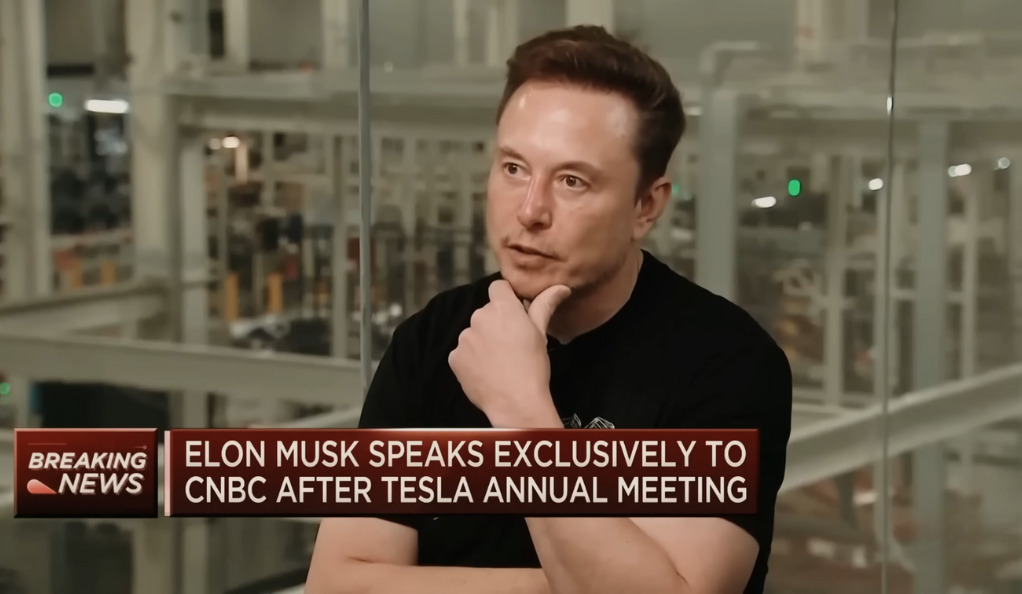
Unchecked Advancements
Musk’s ambitious projects, like brain chips and humanoid robots, are groundbreaking, yet their implications are serious and wide-ranging. The fear is that these advancements, if left unchecked, could usher in a dystopian future.
The notion of brain chips, for instance, brings to mind images of sci-fi dystopias where free will is compromised. Similarly, the development of humanoid robots raises questions about job displacement and ethical boundaries. Are we ready for such monumental shifts? Are we prepared to handle the potential societal upheaval these technologies might cause?
Musk’s Disregard
In a recent interview on CNBC, Musk’s reactions to these concerns were rather dismissive. With a string of “I don’t care” responses, Musk appeared to overlook the potential negative consequences of his technological pursuits. This lack of concern has raised eyebrows among critics and the public alike, adding to the growing skepticism around his futuristic projects.
While Musk is unquestionably a visionary, it is crucial to ponder the potential effects of his innovations. Unchecked technological advancement might lead to unintended and harmful consequences. Hence, a balanced approach, one that considers ethical implications and societal readiness, should be a part of any forward-thinking technological blueprint.
Nvidia’s Record-Breaking Stock Surge
Nvidia, a leading player in the global technology sector, recently witnessed an impressive surge in its stock value, hitting a record high. This remarkable ascent underscores the company’s strength and resilience in an increasingly competitive market. Known for its powerful GPUs and trailblazing developments in AI technology, Nvidia’s groundbreaking innovations have propelled it to new heights, reflecting in its soaring stock prices. This milestone not only marks a significant moment in Nvidia’s corporate history but also reinforces its position as a formidable force in the technology industry.
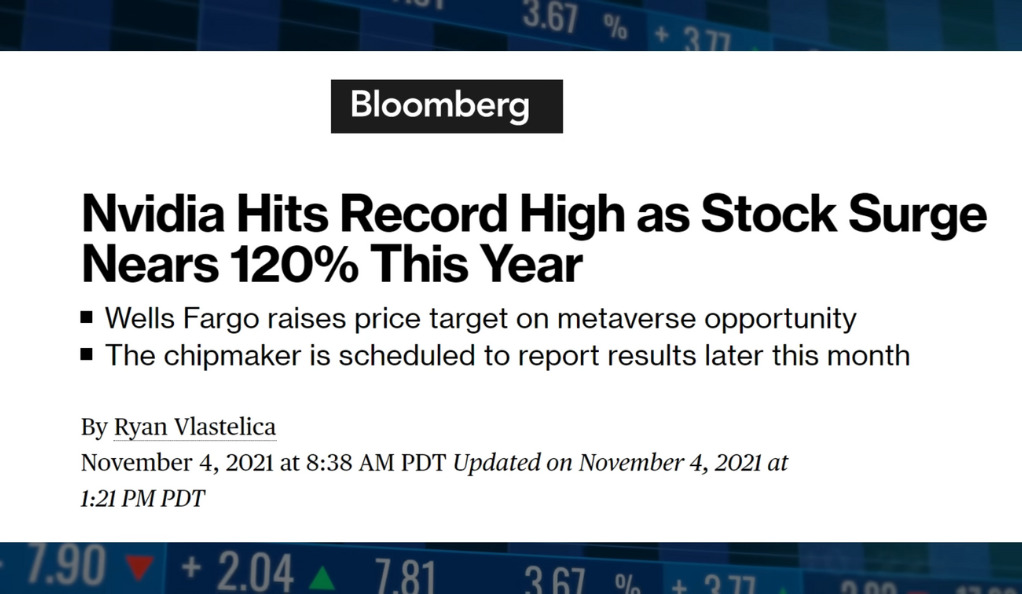
Micron Chips: The Powerhouses of Modern Technology
Micron Technology, an industry leader in innovative memory solutions, is known for its advanced semiconductor chips. These microchips, tiny yet powerful, form the heart of a myriad of modern devices, ranging from smartphones to laptops to advanced servers. These Micron chips, based on NAND and DRAM technology, have played a pivotal role in the evolution of digital technology, powering devices to be faster, more reliable, and more efficient. As technology continues to advance at an unprecedented pace, Micron chips remain at the forefront, continually pushing the boundaries of what’s possible in the realm of digital innovation.
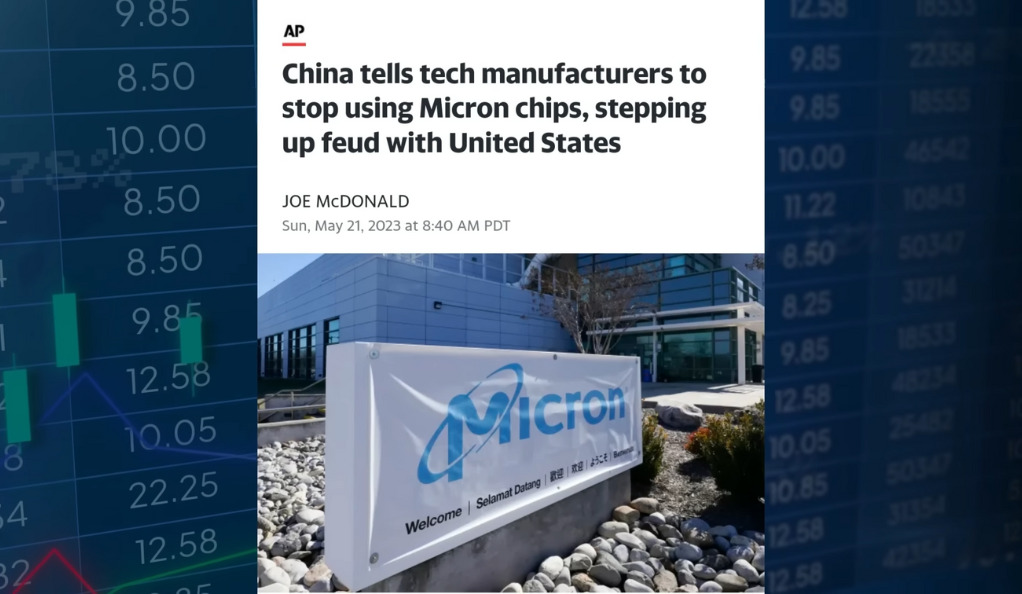
Stock Market: A Tale of Stability and Caution
Navigating from the sphere of politics and technology, we now turn our attention to the financial world. The stock market, often viewed as the pulse of the economy, has been relatively stable recently. A key contributing factor is a surge in the number of call and put options with an expiration date of May 19th. Furthermore, a substantial block trade executed on a Wednesday prompted market makers to cover their positions, resulting in an upswing of individual stocks and the S&P 500 index.
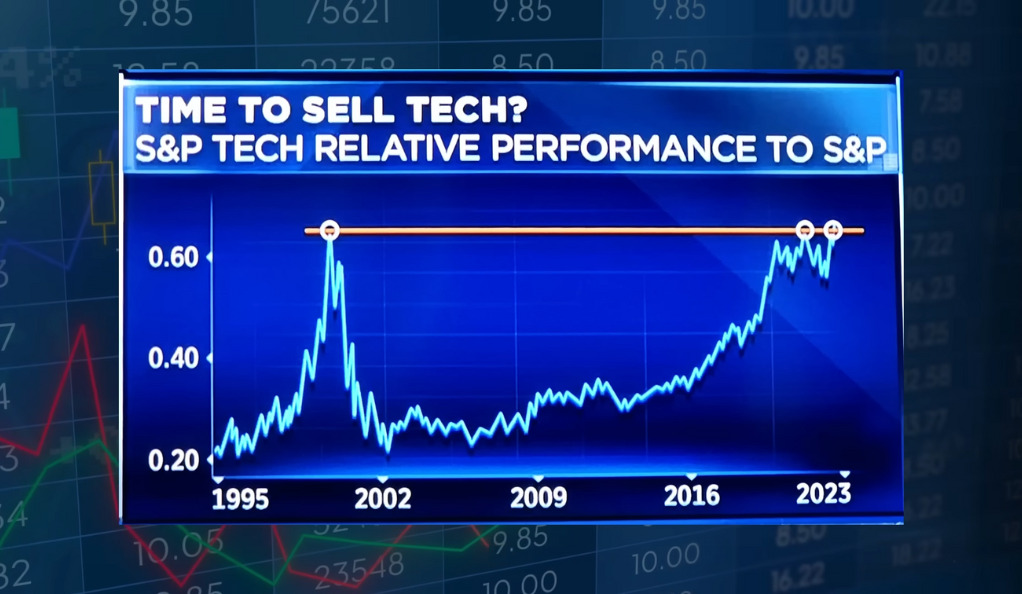
The Bullish Turn
This strategic move triggered a chain of bullish technical updates, sending a wave of optimism through the market. This optimism, coupled with a perceived market stability, led retail investors to pour billions into the market. From a distance, this paints a picture of prosperity and confidence, suggesting a favorable investment climate.
But is this surge in investment activity a golden opportunity or a facade? While the influx of capital gives an impression of a booming market, there are underlying factors that warrant caution.
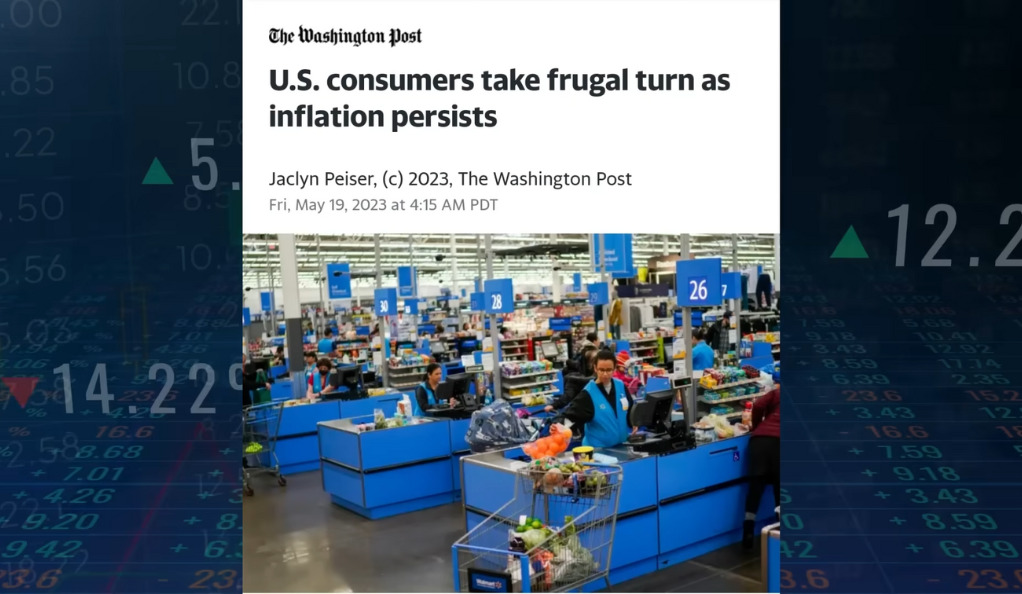
A Word of Caution
Amid the upbeat atmosphere, signs of overbought market conditions have emerged. Major banks have issued advisories, suggesting that it might be time to sell big cap stocks.
This call for caution presents a stark contrast to the current bullish trends. It reminds us that the stock market, much like the real world, is full of complexities and contradictions. While a surge in market activity might indicate a thriving investment landscape, it is essential to tread carefully. Investors should stay informed, assess the market conditions critically, and make investment decisions prudently.
Conclusion
The current global climate is a mélange of politics, technology, and finance, each influencing and shaping the other. Political leaders, like Biden and McCarthy, grapple with critical national issues, shaping the future of governance. Innovators like Elon Musk challenge the boundaries of technology, raising questions about the potential implications of unchecked advancements.
The stock market, a measure of our economic pulse, dances to the rhythm of these developments while adding its own fluctuations. In this dance, investors must balance optimism with caution, navigating the choppy waters of an ever-changing financial landscape.
Together, these factors create a composite image of our evolving world. A world where the lines between the physical and the digital blur, where governance intertwines with innovation, and where market movements reflect broader socio-economic trends.
As we traverse these intertwined domains, we realize the power of information and discernment. With knowledge at our disposal and critical thinking as our guide, we are better equipped to navigate this complex landscape. Whether it’s a decision about political strategy, an opinion on technological advancements, or an investment move, an informed and thoughtful approach is our greatest ally.
In the end, we stand at the crossroads of politics and technology today, but with each step we take, we shape the path for tomorrow. We are not mere observers in this evolving narrative. Instead, we are active participants, influencing and being influenced, creating and adapting, learning and growing. This journey, complex as it may be, holds the potential
Ainu Token aims to offer impartial and trustworthy information on cryptocurrency, finance, trading, and shares. However, we don't provide financial advice and recommend users to conduct their own studies and thorough checks.



Comments (No)